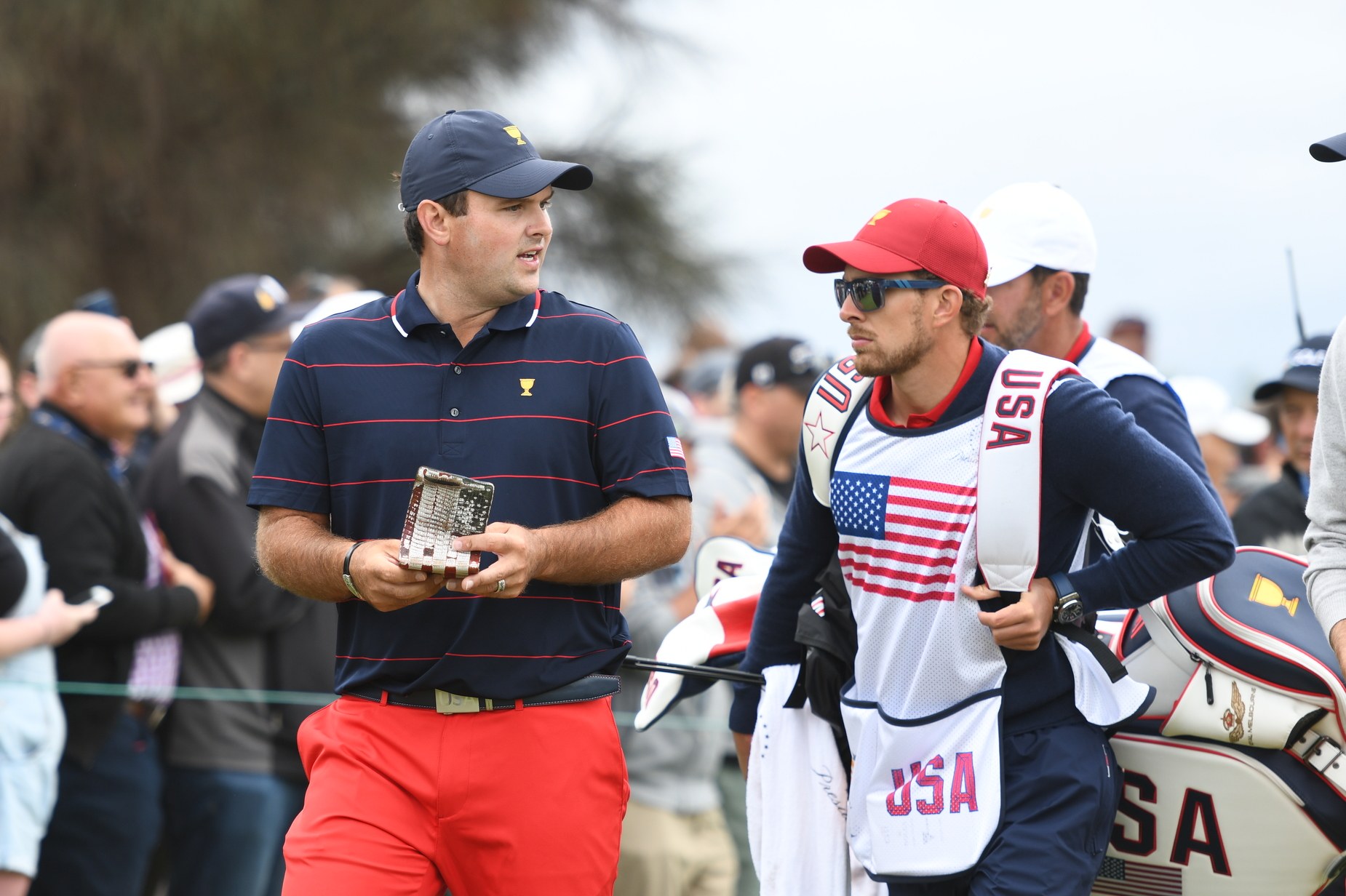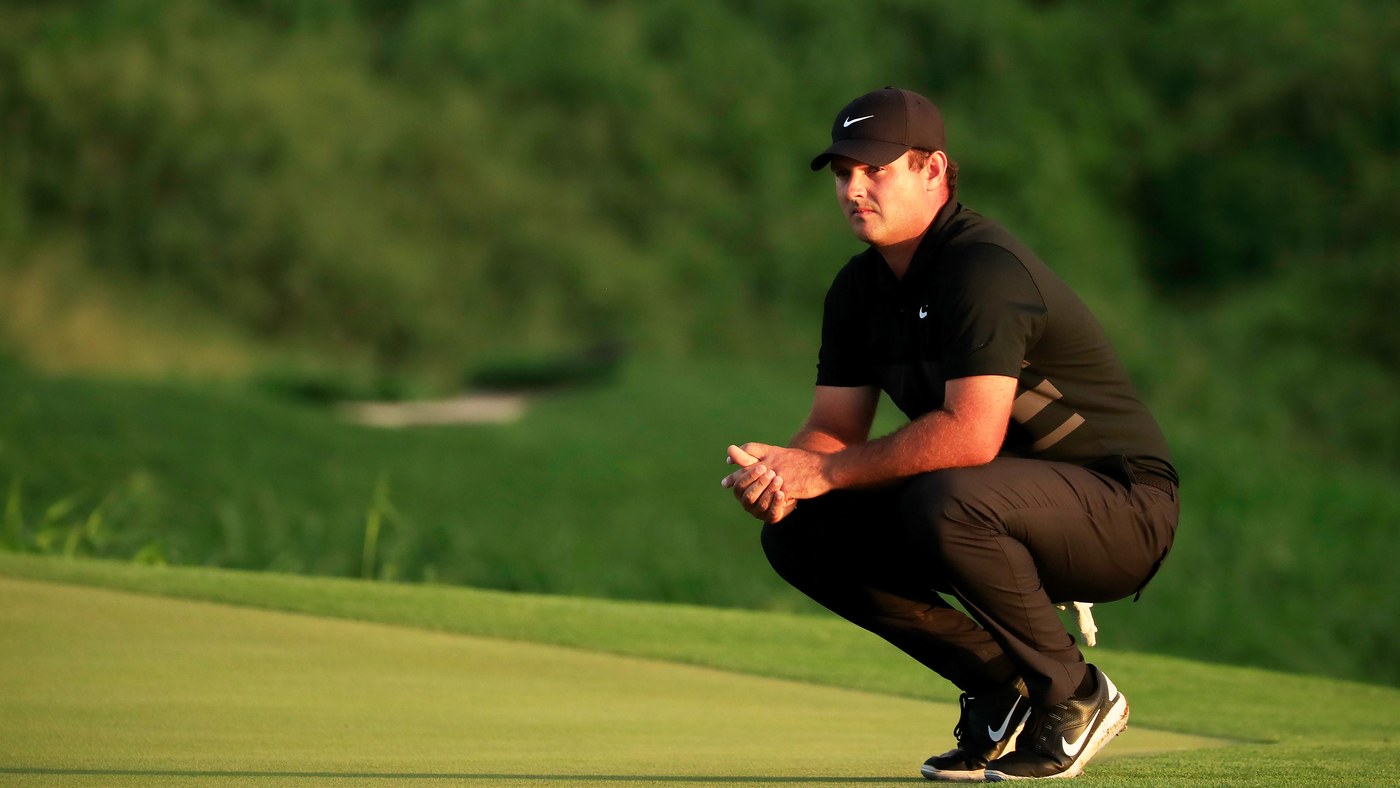By John Feinstein
There’s a scene in the first episode of the brilliant TV show “The West Wing” in which Rob Lowe, playing presidential communications director Sam Seaborn, tries to explain to chief-of-staff Leo McGarry’s daughter that he’s really not as bad a guy as he appears to be.
“I really am a good guy,” he says. “But I’m a good guy having a very bad day.”
Patrick Reed would tell you he’s a good guy—and I’m one of those who would agree with him. But there’s no doubt that he’s had enough bad days that he’s earned a reputation on the PGA Tour among players and spectators as a bad guy that’s not likely to go away anytime soon.
That reputation came into focus yet again on Sunday when a heckler screamed “Cheater!” at Reed just after he stroked his birdie putt on the third hole of sudden death in the Sentry Tournament of Champions, the ball missing the hole wide right. He tapped in for par before Justin Thomas made his short birdie putt to win the tournament.
Reed appeared to turn and glare in the direction of the heckler but didn’t say anything later about the incident.
Reed has had more than one bad day during his often-tumultuous PGA Tour career, but when he’s willing to open up to people, it’s clear he not only is a good guy but wants to be a good guy. He could just use some counselling on how to handle bad days.
Reed’s most recent bad day came in early December at the 18-man exhibition tournament to benefit Tiger Woods’ foundation—and the players in the event, who split up a $3.5 million purse with no cut. During the third round, Reed found himself in a sandy waste area. As he lined up for practice swings, he appeared to dig his club into the sand behind the ball. At the end of the round, after viewing the video, PGA Tour rules official Slugger White told Reed to add two to his score for the day—giving him a two-over-par 74.
Reed insisted he wasn’t attempting to improve his lie, but also said he understood how the camera angle might make it appear that was his intent.
Three things are worth noting here: First, Reed didn’t apologize then, hasn’t apologized as of now and—almost certainly—won’t apologize in the future. Two, White, who had an angry run-in with Woods over a two-stroke penalty he assessed him during the 2013 BMW Championship, said that Reed was “a complete gentleman” when he told him he was going to be penalized. Three, Reed bounced back the next day to shoot a 66 and finished third. If nothing else, Reed has proved over the years that controversy doesn’t often affect his golf.
A week after the incident in the Bahamas, Reed was heckled constantly by fans during the Presidents Cup in Australia. Heckling during Ryder Cup matches has become routine, and with the International team in the unusual position of having a chance to win, the normally staid Presidents Cup became more raucous than normal. In 2016, during the Ryder Cup matches at Hazeltine National, Rory McIlroy had a spectator thrown out during a four-ball match on Saturday afternoon.
“I did it because I was honestly afraid if I didn’t, I might go over the ropes and go after him,” McIlroy said later. As a witness to the spectator’s drunken, profane rant, I understand McIlroy feeling that way.
Unlike McIlroy, Reed had given the Australian spectators a very recent, specific incident to target. It came to a head-on Saturday afternoon when Reed’s caddie (and brother-in-law), Kessler Karain, went after a spectator who cursed at Reed as he was being driven back to the clubhouse on a cart. Karain was suspended by the PGA Tour for Sunday’s singles matches.

Mark Avellino
Reed responded by bouncing back from an 0-3 record in four-ball and foursomes matches to win his singles match against C.T. Pan, 4 and 2, as the U.S. rallied to win.
It’s hard to believe sometimes that Reed’s not yet 30—he’ll get there in August. He’s a Masters champion, has won seven times on tour and has played on three Ryder Cup teams and three Presidents Cup teams. He was nicknamed Captain America after playing a key role in the Americans’ Ryder Cup win at Hazeltine.
But his success has been oft-interrupted by controversy. “I know I don’t come across as the most friendly or outgoing guy,” he told me several years ago. “When I go onto the range, I have my headphones on and music in my ears. I might take them out to talk to Kessler or [wife] Justine. But that’s usually it. I don’t spend a lot of time out there joking around with the other guys. It’s something I need to work on.”
When Phil Mickelson spoke to the Ryder Cup team on Saturday night at Gleneagles, he made a comment on each of the other 11 players. Addressing Reed, he said, “We need to get to know you more. Because you’re going to be playing a lot of these.”
Reed said he took that advice to heart and has tried to be more open with other players, especially those he might find himself sharing a team room with in the future. But golfers are like elephants when it comes to any controversy—they don’t forget.
Players still talk about Reed’s stormy departure from Georgia and whisper about his estrangement from his parents. There was also the incident at Bay Hill in 2018 when Reed asked for relief from behind the 11th green on Sunday because there were TV camera wires in the area where his ball had landed. When it was denied, he said to the gallery that to get relief, “I guess my name has to be Jordan Spieth.”
Then came the 2018 Ryder Cup. Captain Jim Furyk elected to break up the team of Reed and Spieth that had been so successful in 2014 and 2016 (and was initially suggested by Spieth at Gleneagles) to pair Spieth with Justin Thomas. Reed said he was “blindsided” by the change and added that it was clear to him that Spieth simply didn’t want to play with him. When Furyk explained he thought he could create two strong teams by splitting Reed and Spieth up, Reed called the explanation “b.s.” When he was roundly criticized for his comments, Reed noted that when Mickelson called captain Tom Watson out after the matches at Gleneagles he was praised, but “When I did it, I got destroyed.”
There are, clearly, double standards at times. When Reed snapped a wedge over his knee during the second round of last year’s U.S. Open, it became a big story. Other players break or throw clubs with barely a whisper. Of course, Reed’s a major champion with a controversial past, so he’s more likely to draw attention for any misbehaviour.
There’s no doubt that there are players whose explanation of having no intention to cheat during the incident in the Bahamas would have been accepted at face value. When Brandel Chamblee indirectly accused Woods of cheating after the BMW incident in 2013, he was forced to go on Golf Channel to apologize—even though he never made the comments on Golf Channel. With Reed, it’s no holds barred in the media.
It’s worth remembering that Reed has never had a warm relationship with most of the golf media. After he won at Doral—in a World Golf Championship event—in 2014, he said he thought he was one of the five best players in the world. He’d won three times in less than eight months at that point. Most in the media pointed out his World Golf Ranking was 20th, and I remember hearing laughter in media rooms for a while after that when Reed played poorly as in, “Oh, sure, he’s a top-five player.”
I loved that comment. Golf needs more guys who say what they think and don’t just thank sponsors and volunteers and bathe us all in meaningless clichés.
That being said, Reed could use some public-relations counselling. His circle is a tight one: Justine, Kessler and Kevin Kirk, his swing coach. There is a me-against-the-world approach taken by Reed and his team. Some of that is understandable, but backing off it and understanding that there has never been a public figure who didn’t make mistakes—and admitting to one almost always defuses the issue—might work better.
Reed is almost certainly going to continue to hear it from fans—his past is too ingrained in the minds of the golf public for it to stop. Matt Kuchar, one of the game’s most popular players, was heckled frequently last year after initially underpaying his caddie following a victory in Mexico—even though he eventually did pay him more and apologised for the initial misstep. And if Reed is hearing it from the ordinarily docile galleries in Hawaii, imagine what will happen in louder venues, like TPC Scottsdale or TPC Sawgrass? Or in New York this summer at the U.S. Open at Winged Foot? This isn’t something that’s just going to go away.
Reed’s unlikely to get the benefit of doubt anytime soon. Except from those who know him best.
Sam Seaborn did end up dating Leo McGarry’s daughter. Redemption is always possible.









